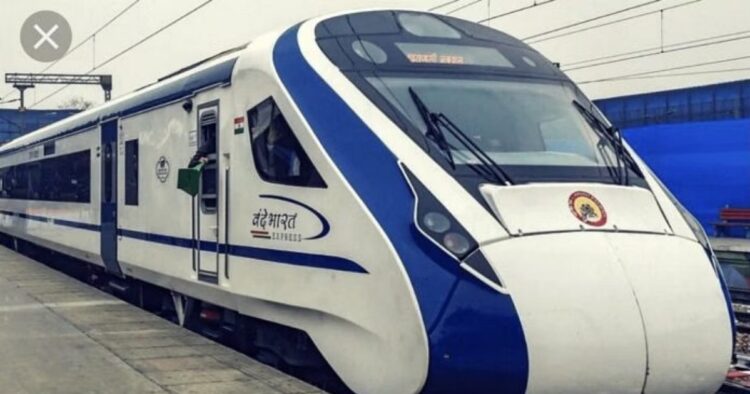In an unexpected development, Indian Railways has decided to cancel a significant Rs 30,000-crore contract for the manufacture and maintenance of 100 aluminum-bodied Vande Bharat trains. The cancellation, which took place on Tuesday, August 13th, has sparked questions about the future of this ambitious project and its impact on the country’s railway modernization plans.
The contract was initially awarded to Alstom, a French company specializing in rolling stock, in June 2023. Alstom had won the tender to produce 100 Vande Bharat train sets, which are known for being lighter and more energy-efficient compared to traditional stainless steel trains. The Indian Railways had planned to use these modern trains to enhance the speed, efficiency, and comfort of its services.
Why Was the Contract Cancelled?
The decision to cancel the contract stemmed from a pricing dispute between Indian Railways and Alstom. The railway’s tender committee found Alstom’s quoted price of Rs 150.9 crore per train set to be too high and recommended that the price should be capped at Rs 140 crore.
Alstom, however, was willing to negotiate and reduce the price to approximately Rs 145 crore per train set, but this was still not accepted.
Alstom had been the lowest bidder in the tender process, which opened in May 2023. Despite offering a competitive price, Indian Railways ultimately decided to cancel the contract in the hopes of securing a better deal in the future.
Impact on India’s Rail Modernization Plans
This cancellation has raised concerns about the potential delays in India’s rail modernization efforts. The Indian Railways had ambitious plans to roll out the first sleeper versions of the Vande Bharat trains by the first quarter of 2025. With the cancellation of this contract, those timelines could be pushed back as new bids will need to be issued, and the tender process will have to start over.
Additionally, there are worries that the cancellation may discourage future bidders from participating in such large-scale projects. Indian Railways had hoped to attract more companies to bid on this project, but only a few met the technical standards. If the new tender conditions are not favorable, it could further limit participation.
The decision to cancel the contract over a pricing dispute also raises questions about the competitiveness of the bidding process. Alstom and a consortium consisting of Swiss company Stadler Rail and Hyderabad-based Medha Servo Drives were the only bidders for this project. Alstom had quoted Rs 150.9 crore per train set, while Medha’s bid was even higher at Rs 169 crore.
The limited competition in the bidding process could indicate that the technical and financial requirements set by Indian Railways are too stringent, potentially deterring other companies from participating. This situation may need to be reevaluated to ensure that the railways can secure the best possible deal while also encouraging more competition.
Despite the setback, Indian Railways remains committed to its vision of deploying modern, efficient trains across the country. The aluminum-bodied Vande Bharat trains were chosen for their lower weight and better energy efficiency, which aligns with the government’s goal of improving the speed and quality of train services.
Prime Minister Narendra Modi has emphasized the importance of expanding Vande Bharat trains to all corners of the country. However, with the cancellation of this contract, there is now uncertainty about how and when this vision will be realized.
The Railways will need to issue new bids and possibly rethink their approach to attract more participants and secure favorable terms.
The cancellation of the Rs 30,000-crore tender for 100 Vande Bharat trains is more than just a business decision; it is a move that could have significant implications for India’s railway infrastructure and modernization plans. As the country watches closely, there are now questions about how Indian Railways will navigate these challenges and whether it can achieve its ambitious goals within the desired timelines.

















Comments